
What You Need to Know About THCP
If we told you there was a cannabinoid in cannabis that is over 30 times stronger than THC, would you believe us? Follow along as we separate the fact from the fluff on THCP, a novel cannabinoid that has stolen the attention of the cannabis and medical research communities.
You're well-aware of THC, and you’ve become acquainted with CBD. You even have a general understanding of CBN, THCV, and a handful of other cannabinoids. But what about THCP? Discovered in the late 2010s, does this cannabinoid have anything unique to offer, or is it just another buzzword circulating the rapidly expanding cannabis industry? We’ll answer these questions, and others, as we strive to uncover all we know about tetrahydrocannabiphorol, or THCP.
What exactly is THCP?
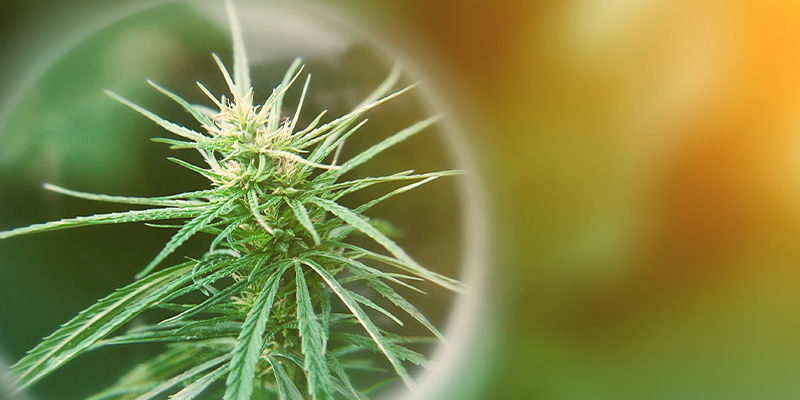
THCP is a cannabis-derived cannabinoid—i.e. a phytocannabinoid—that was isolated from the plant for the first time in 2019 by a team of Italian researchers. Like THC, of which it is a homologue, THCP has a binding affinity for both of the main cannabinoid receptors—CB1 and CB2. However, THCP’s affinity for CB1 in particular appears to be markedly greater than that of THC (delta-9-THC), with some individuals claiming that THCP is significantly more potent than THC to boot (more on this below).
Is THCP synthetic?
THCP is naturally produced by the cannabis plant, but in exceptionally small amounts. For this reason, most THCP products currently on the market are created by chemically altering hemp-derived CBD or using biochemical precursors. But with that said, while THCP can be synthesised from other compounds, it is not inherently synthetic.
How is THCP different from THC?
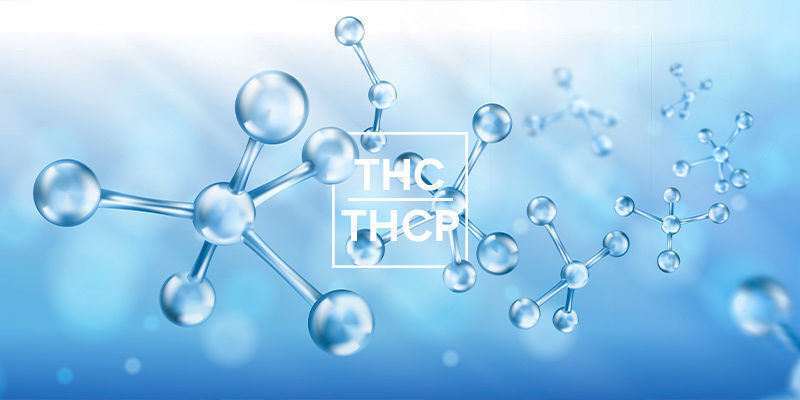
As alluded to above, THCP is a molecular homologue of THC, which means the two differ only in carbon chain length. Specifically, while THC has a five-carbon atom side chain (pentyl), THCP has a seven-atom chain (heptyl). While this may seem to be only a small difference, it has big implications.
Is THCP stronger than THC?
This is where things start to get really interesting. Preliminary research indicates that THCP exhibits a binding affinity for CB1 receptors that is over 30 times greater (33, to be exact) than THC. With this in mind, researchers compare THCP's binding affinity to that of potent synthetic cannabinoid products circulating the market. It's worth mentioning, however, that some sources claim THCP to be 33 times more potent than THC, but binding affinity is not the same as potency. Still, THCP's potency is indeed believed to be much greater than that of THC, but to what degree is unclear, and ultimately subjective.
Unfortunately, as mentioned, natural levels of THCP in cannabis plants are extremely low—often in concentrations far less than 1% by volume. For this reason, there is currently no way to find a cannabis strain high enough in THCP to deliver substantial effects. Furthermore, just because a cannabis plant contains high amounts of THC doesn’t mean THCP levels will be higher. In fact, THC level appears to make no difference at all to natural THCP concentration in cannabis plants.
What are the use cases for THCP?
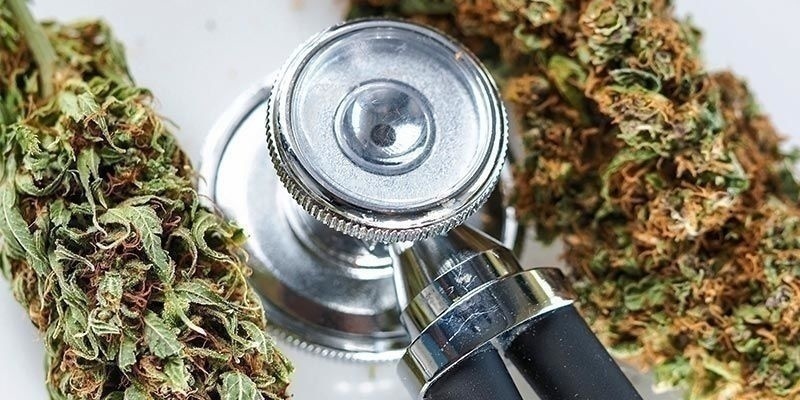
Whenever a novel cannabinoid is brought to light, the medical community and cannabis community are eager to exploit its potential benefits to the human mind and/or body. At present, it’s far too early to assert that THCP may have clinical applications for specific ailments. However, the nature of its effects does make it an intriguing candidate for further research, for multiple reasons.
At the very least, as its potency is believed to be dramatically greater than that of THC, it could potentially be beneficial for medical users seeking highly potent products to address a variety of issues.
How safe is THCP?
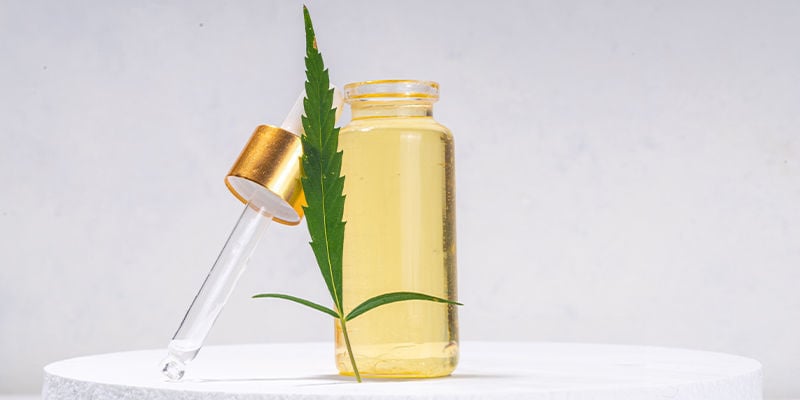
It’s unclear exactly how safe THCP is, especially when taken in the form of isolated, synthesised products. As the market for synthetic cannabinoid products is often very unregulated, you have little way of guaranteeing that what you’re ingesting is actually THCP and hasn’t been adulterated or mislabelled.
Furthermore, as THCP is so potent, it’s possible that users may experience a profound sense of distress upon using such products, with side effects such as paranoia, anxiety, and dizziness. If you do happen to get your hands on THCP products, it's recommended to start with very small amounts, and to source products from a reputable supplier.
Will THCP show up on a drug test?
It is very possible that THCP can cause you to fail a drug test. This is because most common drug tests, such as urine tests, screen for the THC metabolite THC-COOH. And, unfortunately, whether you consume delta-9-THC or THCP, it’s ultimately converted into THC-COOH by the body, meaning it can be picked up by a drug test.
As such, if you know you have a drug test coming up, always abstain from THC, and its analogues/homologues, until after the test.
Is THCP legal?
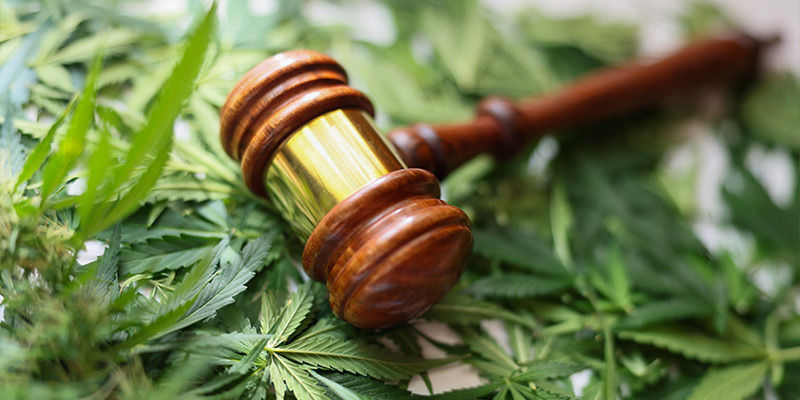
Given its enhanced potency, THCP can’t possibly be legal in areas where THC isn’t, right? Well, it varies. Under the 2018 Farm Bill, any cannabis plant containing less than 0.3% THC is considered legal in the United States. And, as mentioned, it’s possible to use legal hemp plants containing CBD and other cannabis compounds to synthesise THCP.
So, while the final product of THCP is intoxicating, there are numerous loopholes through which it exists on the market today. For example, THCP is currently legal throughout most of the US—but this is subject to change as local and state governments crack down on the sale of psychoactive hemp-derived products.
What THCP products exist?
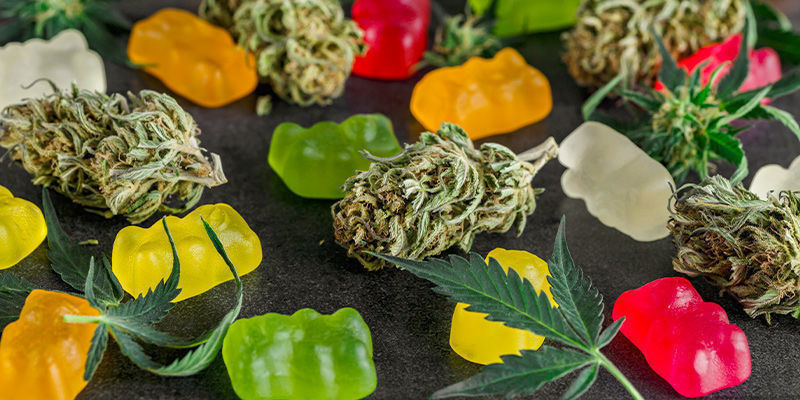
Despite the nebulous legal situation surrounding THCP, numerous products can be purchased online or, in some regions, at physical stores. Most commonly, THCP products appear in the form of vape cartridges, tinctures, gummies and other infused edibles, and dabs. Each product will vary in quality and composition, but most are advertised as being very potent. It's worth noting that you won't come across THCP flower, as there is yet to be a strain that exhibits high levels of the compound. For this reason, if you see THCP buds for sale, you should be very wary, as the product has likely been adulterated in some capacity.
The future implications of THCP
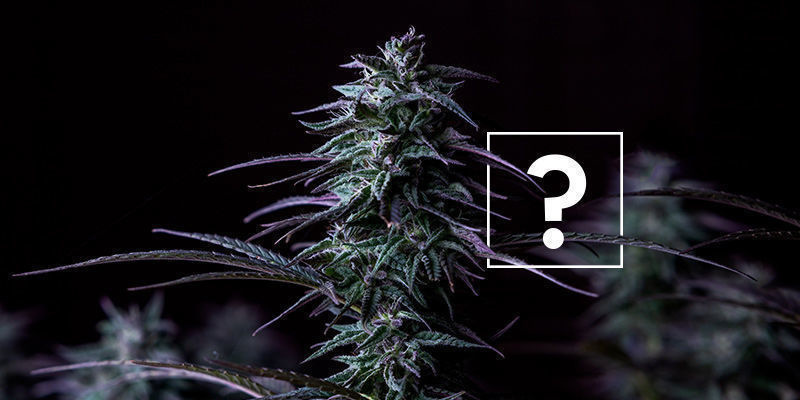
Perhaps one of the most intriguing aspects of THCP’s discovery is its overall impact on the cannabis experience. Researchers are still struggling to determine exactly why different cannabis strains affect us differently. While it’s believed that cannabis phytochemicals like terpenes and cannabinoids play the largest role, it’s not entirely clear which chemicals lead to which effects. But knowing what we know thus far about THCP, it brings to light the potential role of lesser-known, or completely unknown, compounds in the pharmacological effects of cannabis, where the effects can’t simply be explained by the presence of THC, CBD, or other major constituents.
-
 5 min
January 5, 2024
How to Dry Your Cannabis
Drying your cannabis is a vital part of the (post) cultivation process. With a massive range of benefits, taking the time to dry your buds is paramount to enhancing their flavour, aroma, and...
5 min
January 5, 2024
How to Dry Your Cannabis
Drying your cannabis is a vital part of the (post) cultivation process. With a massive range of benefits, taking the time to dry your buds is paramount to enhancing their flavour, aroma, and...
-
 4 min
October 9, 2023
THC Detox: What Can You Do To Aid The Process?
Whether you're looking to take a tolerance break or want to quit THC altogether, there are numerous valid reasons to detox from cannabis. But is there anything you can do to speed up the process?...
4 min
October 9, 2023
THC Detox: What Can You Do To Aid The Process?
Whether you're looking to take a tolerance break or want to quit THC altogether, there are numerous valid reasons to detox from cannabis. But is there anything you can do to speed up the process?...
-
 5 min
October 5, 2023
Microdosing CBD: Helpful Practice Or Passing Trend?
Is it possible to microdose CBD? Maybe, but even if it is, it's hard to say what a microdose would actually be, and what effects it might have. Read on as we separate the facts from the fluff...
5 min
October 5, 2023
Microdosing CBD: Helpful Practice Or Passing Trend?
Is it possible to microdose CBD? Maybe, but even if it is, it's hard to say what a microdose would actually be, and what effects it might have. Read on as we separate the facts from the fluff...
-
 3 min
May 3, 2022
How To Make THC E-liquid With Wax Liquidizer
Here we give you instructions on how to turn cannabis concentrates into THC e-liquid using Wax Liquidizer. This simple method can get you THC-infused e-juice in minutes! Why settle for anything...
3 min
May 3, 2022
How To Make THC E-liquid With Wax Liquidizer
Here we give you instructions on how to turn cannabis concentrates into THC e-liquid using Wax Liquidizer. This simple method can get you THC-infused e-juice in minutes! Why settle for anything...











 United States
United States








